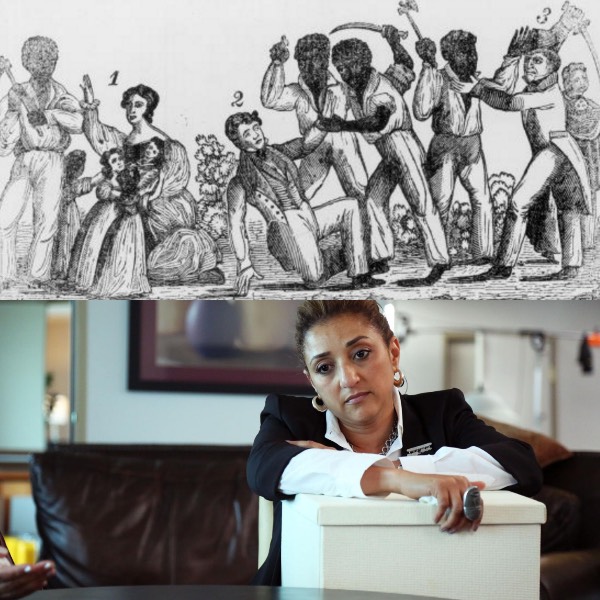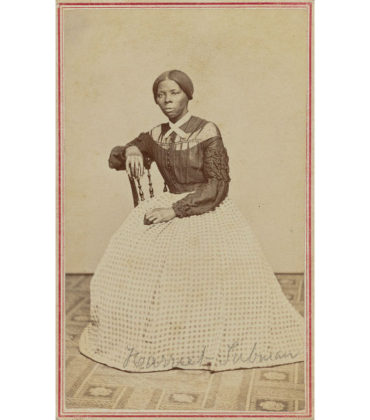
bottom image via National Geographic.
Despite the controversy surrounding the film, the release of Nate Parker’s Birth of a Nation has sparked a new interest in the life, activism, and rebellion of Nat Turner.
In 1831, Turner led the bloodiest slave revolt in American history. The rebellion was suppressed in approximately 2 days by a local militia, but Turner managed to escape. Two months later he was captured, tried, and hanged from a tree in the town of Jerusalem, now modern-day Courtland, Virginia.
Over the years the story of Turner’s rebellion has taken on a life of its own. There is still a lot of speculation over what happened to his body after his death. For years, Turner’s descendants believed that his skull was in the possession of Richard Hatcher, a former mayor of Gary, Indiana. The skull had been donated to Hatcher at a 2002 charity gala for the Civil Rights Hall of Fame. Hatcher had been a major contributor and proponent of the institution.
Several of Turner’s descendants expressed interest in acquiring his remains while being interviewed for the National Geographic Studios documentary Rise Up: The Legacy of Nat Turner.
Shanna Batten Aguirre, a fourth generation descendant of Turner reached out to Hatch personally. Aguirre was honored, alongside other relatives, by Hatch at a private luncheon in Gary, Indiana. The family members were presented with the skull privately, and have no plans to display it in public.




